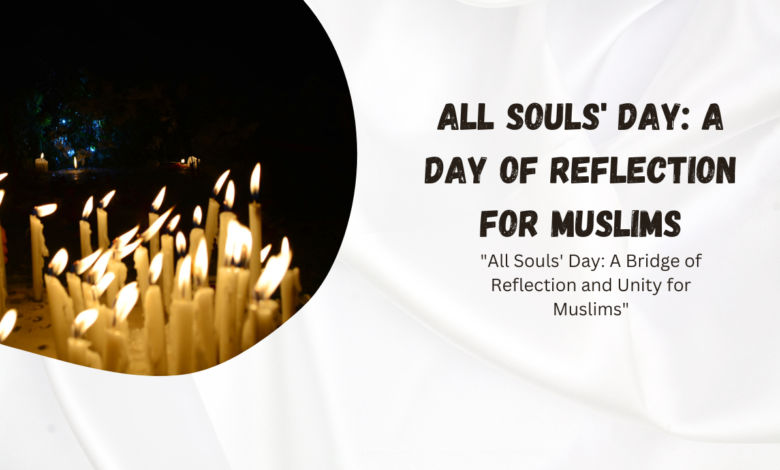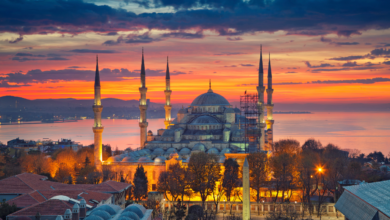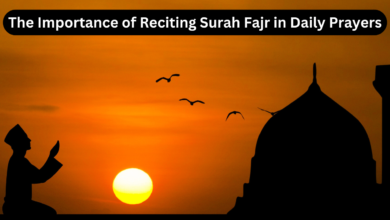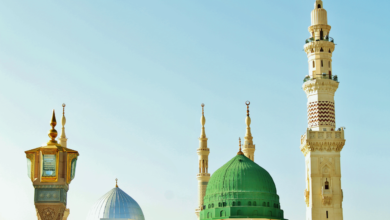All Souls’ Day: A Day of Reflection for Muslims
"All Souls' Day: A Bridge of Reflection and Unity for Muslims"

All Souls’ Day: A Day of Reflection for Muslims
“All Souls’ Day: A Day of Reflection for Muslims” is a fictional event created for the purpose of reflection and remembrance of departed loved ones within the Muslim community. It is not an actual Islamic observance.
Introduction
All Souls’ Day, traditionally observed in many Christian denominations, is a day set aside to remember and pray for the souls of the departed. However, in an increasingly diverse world, the significance of such observances can extend beyond religious boundaries. This article explores how All Souls’ Day can serve as a day of reflection for Muslims, fostering interfaith understanding and promoting empathy for the departed across different religious traditions.
Common Ground: Remembrance of the Departed
In Islam, the remembrance of the deceased is an integral part of the faith. Muslims believe that death is not the end but rather a transition to the afterlife. Similarly, All Souls’ Day in Christianity emphasizes the continuation of the soul’s journey beyond earthly life. This commonality provides an opportunity for Muslims to connect with the universal human experience of mortality and the longing to remember loved ones who have passed away.
Prayers and Acts of Mercy
Muslims are encouraged to pray for the deceased throughout the year, not just on a specific day. However, All Souls’ Day can serve as a reminder to engage in these acts of kindness and supplication. Just as Christians light candles and offer prayers for the souls of the departed, Muslims can seize this day as an occasion to intensify their prayers for their loved ones and for all souls. This shared act of compassion transcends religious boundaries and demonstrates the capacity for interfaith solidarity.
Reflecting on Life and Death
All Souls’ Day prompts Christians to reflect on the transient nature of life and the ultimate destination of the soul. Muslims also engage in similar contemplation through their religious practices. Reflecting on the impermanence of earthly life, the Muslim tradition emphasizes the importance of good deeds, compassion, and seeking forgiveness. On All Souls’ Day, Muslims can reflect on these values and their significance in the broader context of human existence.
Also Check
- The Life and Teachings of Prophet Muhammad (PBUH)
- The Role of Prayer in a Muslim’s Life
- Fragrance of the beloved Prophet Muhammad (PUBH)
- When I think of Christmas?
- Understanding the Core Beliefs of Christianity
- Why is music Haram in Islam?
Bridging Religious Differences
Observing All Souls’ Day as a day of reflection can be an opportunity for interfaith dialogue and understanding. By participating in this Christian tradition, Muslims can build bridges with their Christian neighbors, fostering mutual respect and empathy. This engagement can lead to meaningful conversations about the similarities and differences in how different faiths approach the concept of the afterlife and the remembrance of the departed.
Universal Themes of Hope and Mercy
All Souls’ Day is not just about mourning but also about hope and mercy. It offers the belief that the deceased can find peace and forgiveness in the afterlife through the prayers and intercession of the living. This theme resonates with the Islamic concept of seeking forgiveness and God’s mercy. By recognizing these universal themes, Muslims can appreciate the common ground shared with Christians and other faith communities.
Conclusion
All Souls’ Day, while rooted in Christianity, can serve as a day of reflection and connection for Muslims and people of other faiths. By participating in this observance, Muslims can engage in acts of kindness, prayer, and reflection, promoting interfaith understanding and unity. In doing so, they not only honor the Christian tradition but also find common ground in the universal themes of remembrance, hope, and mercy that bind humanity together in the face of mortality. In an increasingly diverse world, such opportunities for cross-cultural understanding are invaluable, fostering a spirit of empathy and cooperation among people of different faiths.
FAQs – All Souls’ Day: A Day of Reflection for Muslims
What is “All Souls’ Day: A Day of Reflection for Muslims”?
“All Souls’ Day: A Day of Reflection for Muslims” is a fictional event created for the purpose of reflection and remembrance of departed loved ones within the Muslim community. It is not an actual Islamic observance.
Is this a religious holiday in Islam?
No, this is not a recognized religious holiday in Islam. It is a fictional concept designed to promote reflection and community support for those who have lost loved ones.
How is “All Souls’ Day” observed by Muslims?
During this hypothetical observance, Muslims may choose to visit the graves of their departed relatives, offer special prayers, and engage in acts of charity and kindness in memory of their loved ones.
Is there a specific date for “All Souls’ Day” in this concept?
In this fictional observance, “All Souls’ Day” could be observed on a date chosen by the community, similar to the Christian tradition where it falls on November 2nd.
Are there any religious rituals associated with this day?
While not a religious obligation, some Muslims in this fictional context might choose to recite Quranic verses, engage in extra prayers, or make supplications for the souls of their departed family members and friends.
Is “All Souls’ Day” a day of mourning?
While it’s a day to remember and reflect on those who have passed away, it’s not necessarily a day of mourning. It’s more about honoring their memory and engaging in positive acts in their name.
Can non-Muslims participate in “All Souls’ Day: A Day of Reflection for Muslims”?
In this fictional concept, the observance is open to anyone who wishes to participate and show support for the Muslim community in their time of remembrance and reflection.
How can I get involved in this observance if it’s not an actual holiday?
Since this is a fictional concept, there are no real events or observances to participate in. However, you can always support and be understanding of your Muslim friends and neighbors during times of grief and remembrance.






